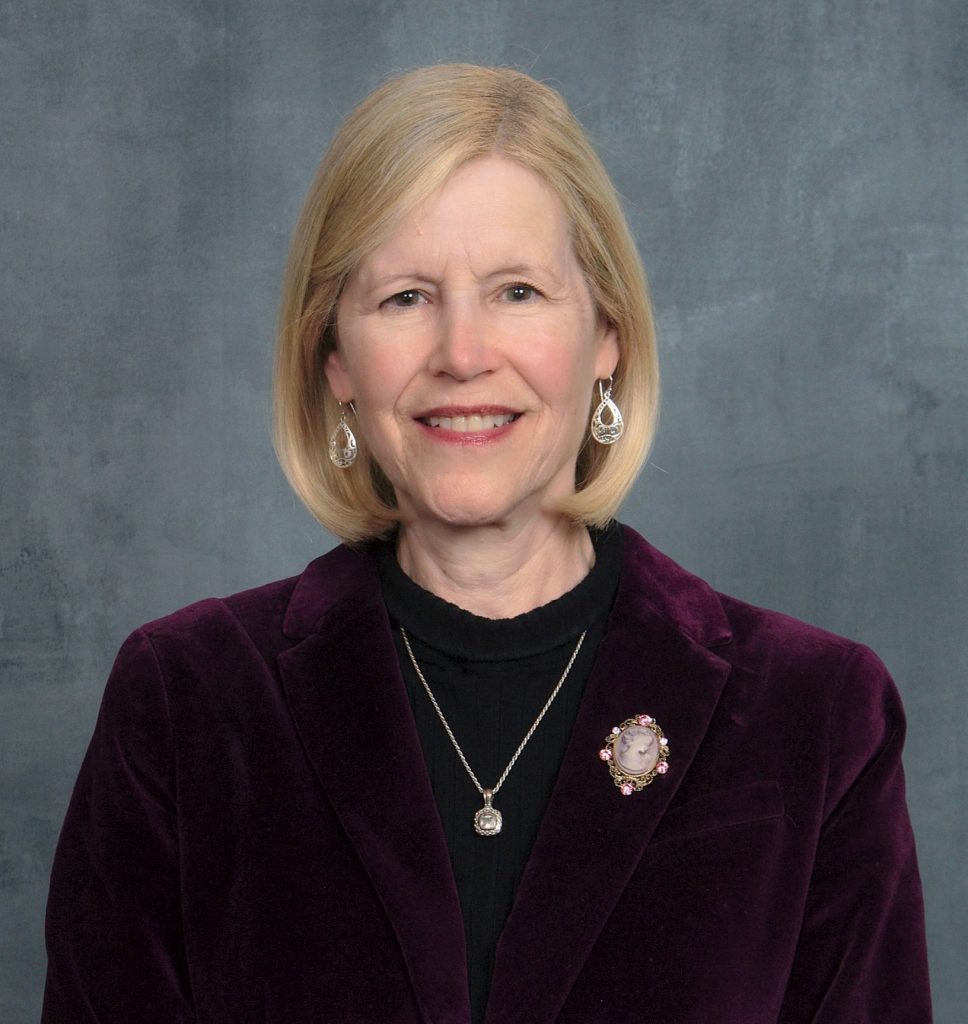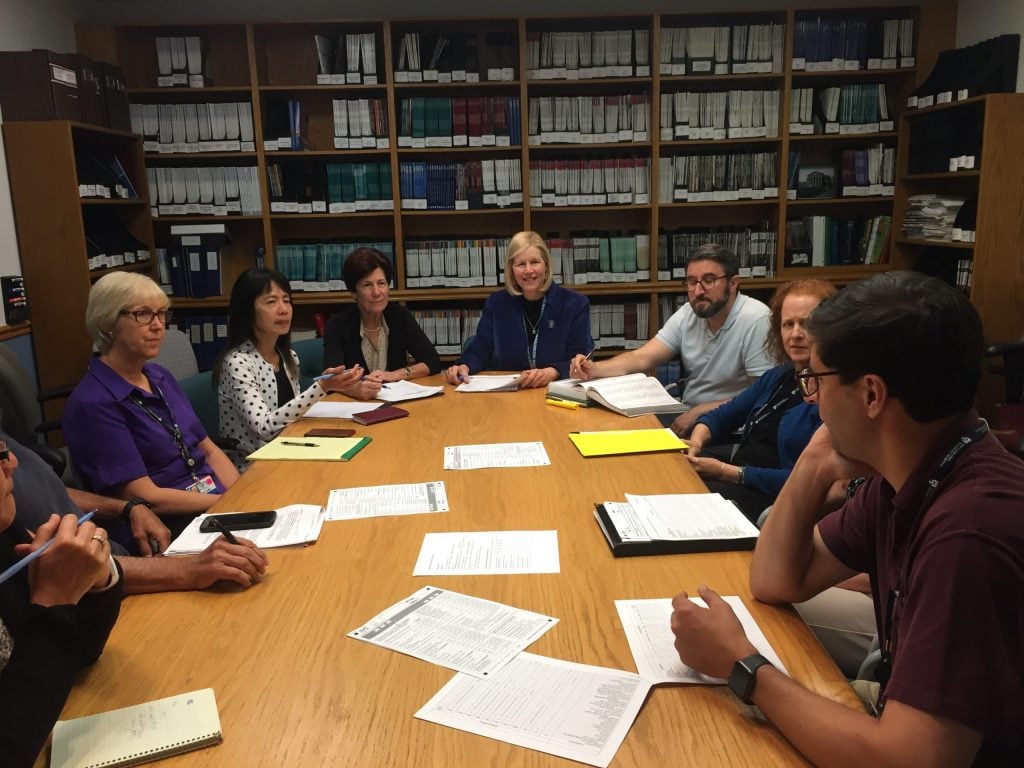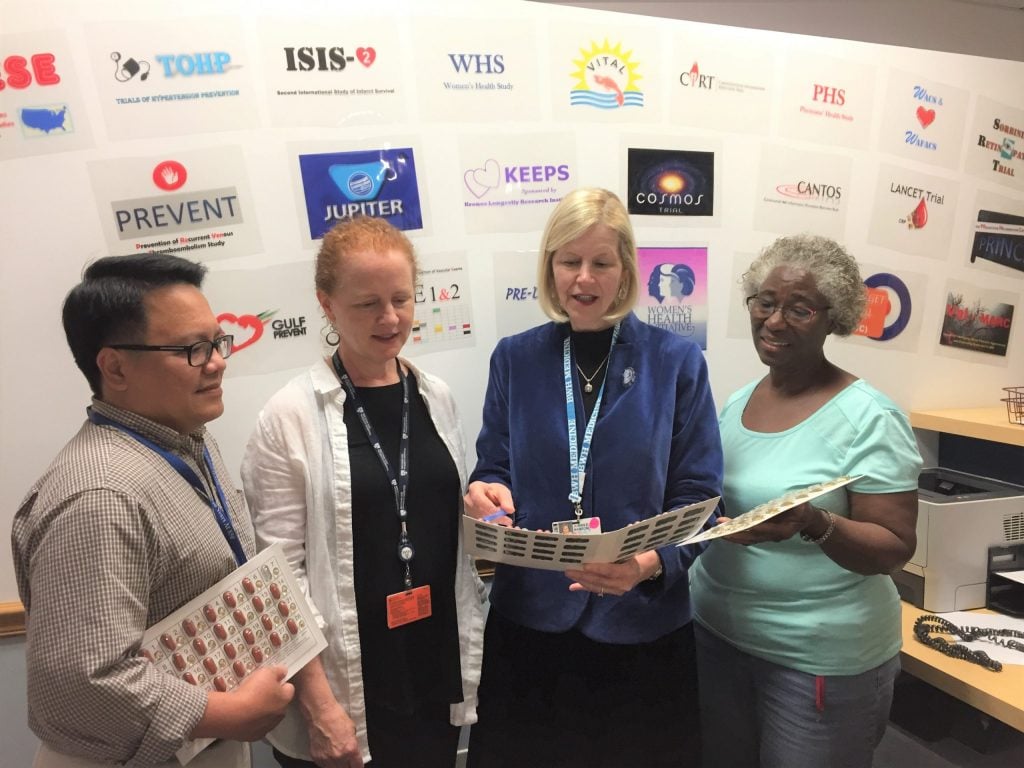Q&A with JoAnn Manson, MD, DrPH, MACP
Endocrine News talks to the Endocrine Society’s 2025 Outstanding Clinical Investigator Laureate JoAnn Manson, MD, DrPH, MACP, about her ongoing research on menopausal estrogen therapy, the risks and benefits of nutritional supplements, her numerous large-scale prevention trials, and why she feels that the concept of a “healthspan” is more important than a lifespan.

The life’s work of JoAnn Manson, MD, DrPH, MACP, has had extraordinary impact on clinical medicine and women’s health and her quest to unlock medical discoveries continues. Her most recent work tackles the concept that our “healthspan” is more important than our “lifespan” and investigates what interventions can ensure we maintain better health and quality of life for longer.
Manson’s efforts to address critical problems like these, and her numerous large-scale prevention trials, are key examples of what led the Endocrine Society to name her the 2025 Outstanding Clinical Investigator Laureate. Manson serves as the Michael and Lee Bell Endowed Professor of Women’s Health at Harvard Medical School and chief of the Division of Preventive Medicine at Brigham and Women’s Hospital. She is also a professor at the Harvard T.H. Chan School of Public Health.
The Endocrine Society’s Laureate award is just one of Manson’s numerous career honors, including the American Heart Association’s (AHA) Distinguished Scientist Award, the AHA’s Research Achievement Award, the Woman in Science Award, election to the Institute of Medicine of the National Academies (National Academy of Medicine) and the Association of American Physicians, and mastership in the American College of Physicians.
“Seeing patients with late-stage complications of preventable diseases really motivated me to pursue research on prevention, both on modifiable lifestyle factors that reduce the risk of major chronic diseases and testing promising interventions in large-scale randomized clinical trials.” — JoAnn Manson, MD, DrPH, MACP, Michael and Lee Bell Endowed Professor of Women’s Health, Harvard Medical School; chief, Division of Preventive Medicine, Brigham and Women’s Hospital; professor, Harvard T.H. Chan School of Public Health, Boston, Mass.
Endocrine News asked Manson more about her clinical discoveries and how she arrived at this path of research.
Endocrine News: What did the news of the Laureate recognition mean to you?
Manson: I was tremendously honored and excited to hear the news about receiving the award. The Endocrine Society has played a key role in my career and professional growth since my earliest days as an endocrine fellow, so it was very gratifying to be recognized in this way. I feel that I share this award with the superb team of researchers and colleagues I’ve been privileged to work with over the decades.

EN: Your contributions have had a major impact on our understanding of the risks and benefits of menopausal estrogen therapy and vitamin D supplementation. You’ve also led studies on prevention of several chronic diseases, including heart disease, type 2 diabetes, and cancer. Was there a defining moment early in your career that sparked the trajectory into this area of research?
Manson: Seeing patients with late-stage complications of preventable diseases really motivated me to pursue research on prevention, both on modifiable lifestyle factors that reduce the risk of major chronic diseases and testing promising interventions in large-scale randomized clinical trials. I was fortunate to have an opportunity early in my career to become one of the principal investigators of the Women’s Health Initiative (WHI), as PI of the WHI clinical center in Boston. The WHI tested not only menopausal hormone therapy but also calcium/vitamin D supplementation and a low-fat dietary intervention. It was exciting to be involved in the WHI and to be part of a team effort that helped to inform clinical decision making on these interventions and to fill some of the knowledge gaps in women’s health.
“We’ve become increasingly interested in the concept of ‘healthspan’ as being even more important than ‘lifespan’ and trying to understand which interventions are most effective for maintenance of cardiometabolic health and prevention of cognitive decline, loss of mobility and physical function, and impaired quality of life.” — JoAnn Manson, MD, DrPH, MACP, Michael and Lee Bell Endowed Professor of Women’s Health, Harvard Medical School; chief, Division of Preventive Medicine, Brigham and Women’s Hospital; professor, Harvard T.H. Chan School of Public Health, Boston, Mass.
For estrogen, it was particularly important to understand how the complex benefit-to-risk profile differed by a woman’s age, time since menopause, and underlying health risks, and it turned out to be generally more favorable in early than later menopause. This was not known prior to WHI and wasn’t clear from the observational research. I was also fortunate to be able to launch, again with amazing colleagues, the large-scale VITamin D and OmegA-3 TriaL (VITAL), testing these interventions for chronic disease prevention. All of these studies are team efforts, and we also owe an enormous debt of gratitude to the study volunteers who participate in these trials and help get answers for future generations. Regarding your question about a defining moment early on, my mother’s death from ovarian cancer at the start of my medical training was the original inspiration for my commitment to women’s health and randomized trial research.
EN: You are a contributor to Medscape, Web MD, and many lay media outlets. Are the concerns of women over 50 still the same as 10 years ago? It seems low estrogen or vitamin D sufficiency remain major concerns of women in menopause.
Manson: Yes, I’m frequently asked questions about who’s a candidate for menopausal hormone therapy and who should take vitamin D supplements. These questions are similar to the ones I’ve been asked over the past decade. However, I’m also being asked lots of questions about other dietary supplements and which ones are worth taking, including whether to take omega-3s or multivitamins. For the latter, the increasing number of questions may be related to our recent findings in COSMOS that multivitamins appear to slow age-related memory loss in older adults. In this field, the answers tend to be nuanced, and most require taking individual factors into account. It’s rarely a “one-size-fits-all” answer.
EN: Can you share a few of your Division of Preventive Medicine’s major research goals for the coming year?
Manson: We’ve become increasingly interested in the concept of “healthspan” as being even more important than “lifespan” and trying to understand which interventions are most effective for maintenance of cardiometabolic health and prevention of cognitive decline, loss of mobility and physical function, and impaired quality of life. We’re interested in multi-omic predictors of biological aging and interventions that may be able to slow biological aging, such as measured by epigenetic and proteomic clocks, and to extend healthspan. This will include testing of novel and repurposed medications for this indication.

We also have several additional questions we’d like to pursue in VITAL, COSMOS, and some of our other trials, as well as an interest in trying to replicate some of the key findings in new trials. Finally, we have a strong interest in studying contemporary formulations of transdermal estradiol and progesterone therapy, to better understand their health effects among recently menopausal women.
EN: When you’re not at work what is your favorite way to pass the time?
Manson: Spending time with my family, no matter what the activity. We especially enjoy time outdoors, such as nature hikes, walking, and exploring towns on the north shore of Boston and throughout New England. We live in an antique colonial house that’s now 220 years old, so there’s always repair work beckoning. But visiting with our three children (two in California and one in Connecticut) or welcoming them home for their visits remains our greatest joy and favorite activity.
Shaw is a freelance writer based in Carmel, Ind. She is a regular contributor to Endocrine News and writes the monthly Laboratory Notes column.

